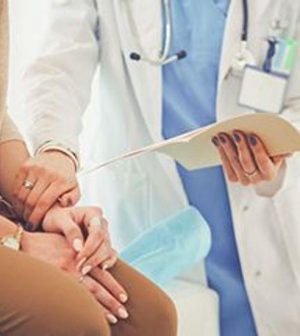- 10 Strategies to Overcome Insomnia
- Could Artificial Sweeteners Be Aging the Brain Faster?
- Techniques for Soothing Your Nervous System
- Does the Water in Your House Smell Funny? Here’s Why
- Can a Daily Dose of Apple Cider Vinegar Actually Aid Weight Loss?
- 6 Health Beverages That Can Actually Spike Your Blood Sugar
- Treatment Options for Social Anxiety Disorder
- Understanding the Connection Between Anxiety and Depression
- How Daily Prunes Can Influence Cholesterol and Inflammation
- When to Take B12 for Better Absorption and Energy
Sales of Unproven, Unapproved Stem Cell Therapies Are Booming

The sale of unproven and unapproved stem cell treatments has skyrocketed in the United States, according to a new five-year study.
The study found a fourfold jump since 2016 in the availability of the treatments, which claim to do everything from relieving pain to slowing aging.
People who use these treatments are needlessly spending thousands of dollars and could be putting their health at risk, study author Leigh Turner warned.
“One of the most troubling features of this marketplace is that businesses selling unproven and non-FDA-approved stem cell products often use marketing misrepresentations and aggressive sales tactics to exploit the hope, suffering, fear or desperation of patients,” said Turner, a professor of health, society and behavior at the University of California (UC), Irvine.
Using online search tools, the study identified 1,480 U.S. businesses and 2,754 clinics offering purported stem cell treatments. That compares to 351 businesses and 570 clinics that did so five years ago.
The United States now has more locations offering such treatments than any other country, including those that were once hot spots for so-called “stem cell tourism,” the findings showed.
Stem cell therapy, also known as regenerative medicine, has resulted in life-saving treatment of patients with certain types of cancer and blood diseases. But the safety and effectiveness of stem cell products needs further testing, according to a university news release.
In this study, the states with the highest number of stem cell clinics are California (347), Texas (333) and Florida (310).
The findings were published online Nov. 4 in the journal Cell Stem Cell.
“Many of these ‘clinics’ are promoting unlicensed and unproven stem cell products and claim their interventions do not require FDA approval,” said Turner, a member of UC-Irvine’s stem cell research center and ethics leader at its Institute for Clinical and Translational Science. “However, that couldn’t be further from the truth.”
Turner said there is widespread promotion of products that do require authorization by the U.S. Food and Drug Administration before marketing.
“In many cases, these clinics are using misleading advertising and predatory marketing techniques,” he warned.
Claims about the treatments include helping with pain (85%+), orthopedic diseases and injuries (46%+), and sports-related injuries (22%+). The claims range from helping with hair loss and slowing the aging process to strengthening the immune system to protect against SARS-CoV-2, the virus that causes COVID-19.
Out-of-pocket costs for the treatments range from $1,200 to $28,000, with an average of about $5,100.
Unproven and unapproved stem cell products pose numerous risks to patients and have caused some serious harm to some, according to Turner, who added that the situation is likely to continue unless the FDA and other agencies step up enforcement.
More information
Read a U.S. Food and Drug Administration warning about unapproved stem cell therapies.
SOURCE: University of California, Irvine, news release, Nov. 4, 2021
Source: HealthDay
Copyright © 2026 HealthDay. All rights reserved.










